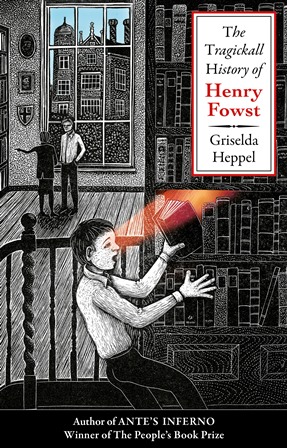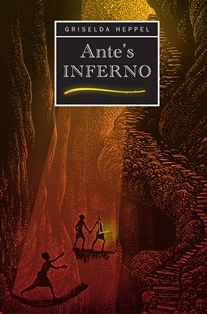There’s no shortage of advice for new writers.

Mostly it’s good and – crucially for the bewildered punter – undisputed. This is particularly true of the many Rules for Good Writing you can find on countless websites, all agreeing on the vital ingredients of structure, narrative arc, believable dialogue, spare scene depiction and clear and concise expression. You won’t find many people advocating ‘tell, not show’, for instance, or advising you that your plot structure needs loosening, your dialogue more padding out and that you haven’t included nearly enough adverbs.
But when it comes to what you should write about, the picture changes. It seems that for every piece of advice an opposite one exists. ‘Write about what you know’ clashes with ‘be adventurous – leave your comfort zone.’ ‘Write the kind of book you like reading,’ comes up against ‘write what the market wants.’ And in the case of children’s books, ‘write for exactly those age groups that fit into categories defined by the book trade.’ What if the kind of book you want to write – the only kind, according to every successful writer I’ve ever heard speak on the subject – refuses to fit into these categories?
Which is where I come in.
Ignore external evidence – inside I’m permanently somewhere around 12 years old. A fabulous age for books (could be why); still young enough for magic but old enough to want depth of character, realism, conflict, tough choices for the story’s hero – all the ingredients of a well-crafted, fast-paced novel. So it seemed only natural that when I set out to write children’s books, the main characters would be 12 – 13 and the ideal age for my readers somewhere around those ages: 10 – 14 years.
Just one snag. According to the book trade, this category doesn’t exist. Instead, children are divided into PreReaders (picture books), Young Readers (6 – 8 years) and Middle Grade (9 – 12). From 13 years they are officially Young Adults, and apparently ready for stories centred on a range of difficult and disturbing topics: war, drug addiction, rape, incarceration, repression, torture, brutality, cancer, death … Important themes, all of them, and there’s no doubt they’ve inspired some of the greatest writing around today. But I can’t help finding it bizarre that books devoured by my sons in their mid-twenties should be marketed to children barely into their teens; as if there were no difference in reading tastes between a 13 year-old and a 25 year-old.
Meanwhile, how do I pitch my own books?
Both Ante’s Inferno (Troubador, 2012) and my new book, The Tragickall History of Henry Fowst, (Troubador, 2015) have elements of darkness. In Ante’s Inferno (inspired, as the title implies, by Dante’s Inferno), 12 year-old Ante (Antonia) finds herself on a journey through the classical underworld to the heart of hell, which turns out to be a recreation of a First World War battlefield.
Now, with The Tragickall History of Henry Fowst, I’ve taken my cue from the Faust legend: Desperate to escape his problems, 13 year-old Henry can't believe his luck when he stumbles on a 16th century diary containing instructions on how to summon a spirit to one’s aid. Unfortunately, calling up Mephistopheles leads him into deeper trouble than he'd ever bargained for.
Pain, fear and danger are strong themes in both books but not, I hope, to a disturbing extent; on the other hand, enough complexity and moral conflict are woven into the storylines to need a certain maturity in the reader. Just because Ante’s Inferno fits the 9 – 12 years age range doesn’t mean it has nothing to offer teenagers and older readers; while The Tragickall History of Henry Fowst contains Elizabethan language and references that make it better suited to age 11 and above. A Young Adult book then – but anyone hoping for dystopia, graphic violence and teenage relationships will be disappointed.

I know I’m not alone in longing for some kind of stepping stone between books for younger readers and the brutal ‘realism’ offered by so many YA novels. While I admire these writers, I don’t think I could have read them at 13 and even now, the unflinching depiction of bloody battle scenes is often too much for me. I accept that many young people are made of stronger stuff but those that aren’t – or just don’t want to read this kind of adventure – should be catered for, too.
Here are some excellent reading suggestions supplied by Emma Perry on her blog, My Book Corner, who clearly feels the same way as I do. We need more lists like this one, if only to prove that the market exists.
So come on, fellow children’s book enthusiasts – let’s get listing!
Griselda Heppel grew up in England and Germany. She worked in publishing for a while before moving to Oxford to bring up her four children and took to writing when her youngest was 11 years old. Her first book, Ante's Inferno , won the People's Book Prize and a Silver Wishing Shelf Award. Her new book, The Tragickall History of Henry Fowst has just been published with Troubador. When not writing she volunteers at the magical Story Museum in Oxford, allowing her the happy combination of losing herself in stories while feeling virtuous. Find out more on her website and blog.
Comments